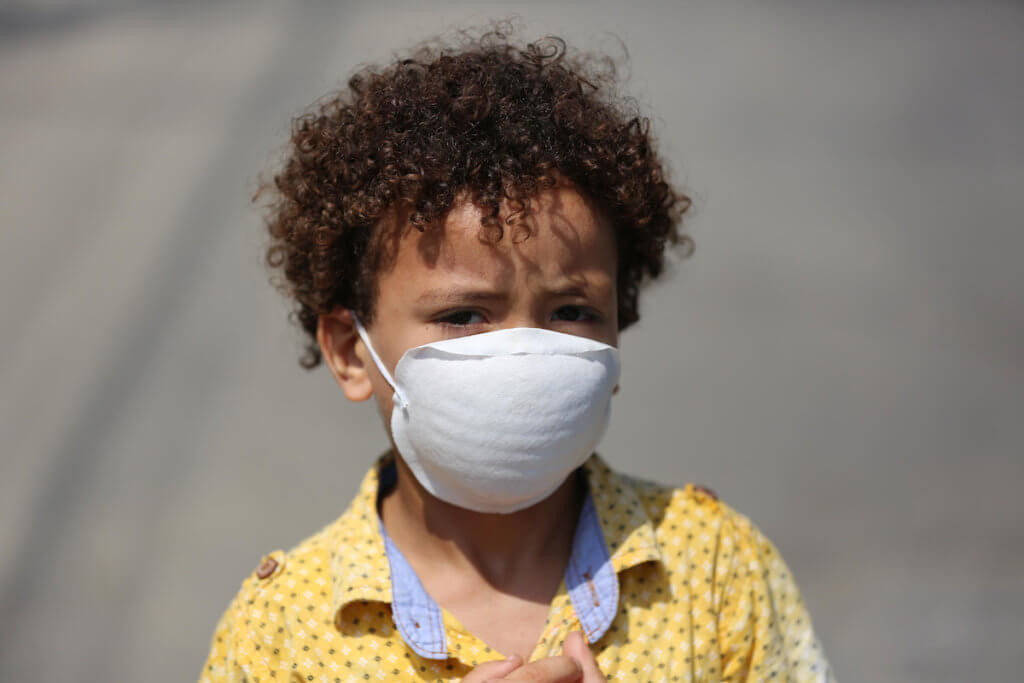A Palestinian boy poses for a photo as he wears a face mask to protect himself against COVID-19, in Deir Al Balah in the central of Gaza Strip, on September 6, 2020. (Photo: Ashraf Amra/APA Images)
Walking down the streets of the West Bank past bustling shops and restaurants, one might forget the fact that we’re still in the midst of a global pandemic.
Oftentimes the only reminder of the times we’re living in are the face masks donned by workers and patrons — though it’s safe to say masks in Palestine have unfortunately become the exception, not the rule.
Like much of the world, people in Palestine have been on an emotional roller coaster in terms of their attitudes towards the coronavirus since the pandemic first came to their towns and cities back in March.
What started off as fear of the unknown, has now settled into somewhat of a feeling of indifference, and detached acceptance. It’s not that people don’t care about getting sick or spreading the virus, but more so that they are tired of their lives being put on hold for something that at this point seems inevitable.
The casual manner in which people are dealing with the virus, however, is not necessarily an accurate reflection of the reality of COVID-19 in Palestine.
While the Ministry of Health has reported a 68% recovery rate of all COVID-19 cases in the West Bank, East Jerusalem, and Gaza, that number reflects all recoveries made since March, when in reality the majority of new cases have been reported in the past two to three months.
Despite life returning back to relative normalcy, and children going back to school, the virus actually feels closer than ever.
Now, more than any time since the beginning of the pandemic, I personally know more people who have contracted COVID-19, and that number is going up everyday.
Within the past 24 hours alone, the MOH announced 10 COVID-19 related deaths and 717 new cases of the virus.
In Gaza, where the first cases of local transmission were detected two weeks ago, the number of total cases has surpassed 1,200. Unlike the West Bank and East Jerusalem, the stakes in Gaza in terms of the spread of COVID-19 are much, much higher.
Gaza is one of the most overcrowded places on earth, with one of the highest unemployment rates in the world — which has only skyrocketed because of the coronavirus pandemic.
Gaza’s healthcare infrastructure has been on the brink of collapse for years, as hospitals struggle to keep their doors open after suffering through three Israeli offensives and 13 years of a land, air, and sea blockade.
Over the past two weeks, as Gazan’s live with only a few hours of power a day due to massive fuel shortages, there have been increased instances of deadly house fires caused by candles that have ravaged homes and families alike.
It is becoming increasingly clear that not only are we not out of the woods yet with the coronavirus, but for places like Gaza, the worst is yet to come.


